Rice: Research to Production - 2009 Course Participants
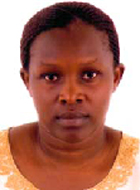
Stella E. Adur
Research Officer, Socio-economist National Crops Resources Research Institute steyug@yahoo.com
I got a bachelor degree in Agricultural Economics in 2001 from Makerere University Kampala and worked with International Food Policy Research Institute, Kampala as a research Assistant for 1.5 year contract and enrolled for a master degree in Development and Resource Economics in Norwegian University of life Sciences which i completed in 2005. I then joined National Agricultural Research Organisation since February 2006 as a Socio-economist, based at National Crops Resources Research Instiute, Namulonge. I am carrying out the following activities for rice and maize (cereals) program;
- Participatory Diagnosis (needs assessment) of farmer research groups
- Baseline studies
- Monitoring and Evaluation
- Profitability studies (cost benefit analysis)
- Feasibility studies (prioty setting exercise)
- Adoption studies and impact assessment.
- With effect from March this year, i got involved in training farmer groups on record keeping, profit and loss (balance sheet) for a project called Good Seed Initiative on rice. We are trying to empower farmers to grow rice seed.
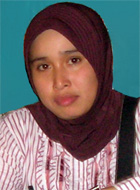
Astiani Asady
Extension Staff Dinas Pertanian Tanaman Pangan and Holtikultura Kab Bone astiani_asady@yahoo.co.id
I've just finished my Master degree at Hasanuddin University Makassar, Indonesia in Phytopathology. I'm interested in agricultural science because I live in a small town with wide rice field and the most of the people there work as a farmer. After finished my high school, I went to study in agricultural faculty of Hasanuddin University. Here I developed my interest in phytopathology because this was one of major problems with our farmers. After graduated I worked as one of extension staff in Agriculture Institute in my hometown, where I can be learn more about farmers life and all of their problems.
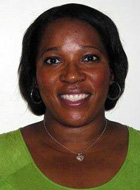
CaSandra Carter
NSF-sponsored Participant
CaSandra Carter is a second year graduate student at Cornell University, pursuing a Master's degree in Horticulture, with a specialization in International Agriculture & Rural Development. A native of Chicago, IL, I first became introduced to the field of agriculture through attending the Chicago High School for Agricultural Sciences. There, at a high school located on 110 acres of farmland in a major metropolitan city, I began a long journey in learning about the importance of the agricultural sciences, and its role in local, national and global food systems. I then went on to study Biosytems & Agricultural Engineering at the University of Minnesota-Minneapolis/St. Paul, with an emphasis in food processing. After working for several years in the private sector as well as in the non-profit sector, and traveling to several countries around the world, I developed an interest in the role of agricultural development in poverty reduction in the developing world. My graduate research is focused on analyzing the success factors for the implementation of GLOBALG.A.P. (Good Agricultural Practices) certification among smallholder horticultural producers in Colombia, as a means of gaining access to formal markets, and evaluating the associated economic benefits for small farmers.
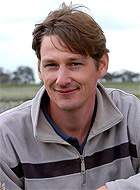
Raymond B. Cowley
Scientific Technical Officer New South Wales Department of Primary Industries raymond.cowley@dpi.nsw.gov.au
I have been actively involved in agricultural research for more then 10 years working with NSW DPI on a range of industry funded projects (see below). During my employment at NSW DPI I have gained experience in all aspects of plant breeding and selection, including plant pathology and the use of genetic techniques to aid varietal selection and improvement. Much of my work to date has been focused on developing screening assays for biotic (pathology) and abiotic (acid soil and drought) stresses to aid selection of breeding lines for advancement within breeding programs. Currently I am undertaken a PhD as part of my employment and am on course to submit the thesis later this year. I was recently appointed to the role of Research Agronomist (Canola) and will commence duties in this research function in May 2009.
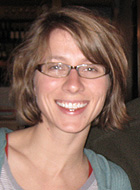
Bethany Econopouly
Graduate Student
Colorado State University
Telephone: 970.402.0459
b.econopouly@gmail.com
NSF-sponsored Participant
Bethany Econopouly is a second year graduate student pursuing a Master's degree in Plant Breeding and Genetics at Colorado State University. My thesis work focuses on evaluating the risk of gene flow between transgenic drought-tolerant wheat (Triticum aestivum) and its related weed species, jointed goatgrass (Aegilops cylindrica). I am most interested in looking at the introduction history of Ae. cylindrica into the western U.S., the genetic diversity of the species, and how this genetic diversity correlates with variation in phenotypic traits for stress tolerance. In the future I plan to work on the conservation of wild relatives of domesticated crop species as well as historically diverse cultivars. I am interested in how genetic diversity can be utilized in crop improvement programs in response to changing environments due to climate change and the increased use of marginal land. I served as a teaching assistant my first semester as a graduate student for an undergraduate course, World Interdependence, Population, and Food, in order to both increase my knowledge of international agriculture and to promote the subject to interested students. This trip provides me with a way to further expand my education to include international and applied approaches to working on agricultural improvement.
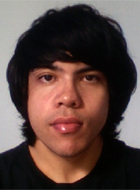
Aryo B. Feldman
PhD student The University of Nottingham Malaysia Campus khbx8abf@nottingham.edu.my
Gatsby-sponsored Participant
I was born and bred in the UK. I have Indonesian blood and am currently carrying out my PhD Biosciences in a Malaysian campus of an English university, the University of Nottingham. My PhD project closely follows my research interests, i.e. rice leaf and canopy level photosynthesis, physiology and morphology. In addition, I believe that wild Oryza species have shown signs of being a promising source of boosting the much needed biomass production values of cultivated varieties. Constantly progressing modern technologies and research projects- in particular, the IRRI-led C4 rice project- make our current times very exciting in regards to rice research and agriculture. It is my ambition to be involved in the C4 rice project at IRRI both in the short and long term to help alleviate global hunger and poverty.
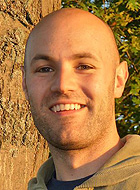
Parker Filer
NSF-sponsored Participant
Parker Filer is a graduate student at Cornell University. He is currently pursuing a Master of Professional Studies degree in the field of International Agriculture and Rural Development (IARD). His research interests include conservation agriculture, soil health, and agricultural knowledge transfer. Parker grew up in western Pennsylvania where he was first exposed to agriculture by working and playing in his family's home gardens. In 2006 he completed a Bachelor of Science degree in Tropical Plant and Soil Science at the University of Hawaii at Manoa. This summer he hopes to begin volunteer service in the United States' Peace Corps.
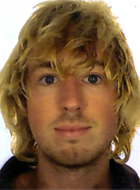
Jim P. Fouracre
Gatsby-sponsored Participant
I completed a Bachelor's degree in Biological Sciences at the University of Oxford in June 2008. I specialised in Plant Sciences and Developmental Biology, undertaking a dissertation project investigating the conservation of homeobox gene function during land plant evolution. Separately, I also carried out a summer project at St. George's, University of London, looking at recombinant antibody production in tobacco. Before embarking on a DPhil in C4 rice development back at Oxford in October 2009 I decided to take a year out. During this year I have spent 4 1/2 months working on a research project on the interaction between social network and stress level in two troops of wild baboons on the edge of the Namib desert and am currently working for the National Health Service. Plant science and baboons aside, I enjoy playing sport, particularly football and cricket, and travelling.
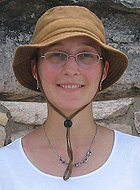
Briana Gross
Post Doc
Washington University, St. Louis
Telephone: 314.935.7151
brianagross(at)wustl.edu
NSF-sponsored Participant
Briana Gross grew up in Boise, Idaho, and completed a B.S. in Biology at Willamette University in Salem, Oregon. I then enrolled in the graduate program of the Evolution, Ecology, and Behavioral Biology program at Indiana University in Bloomington, Indiana. My graduate research, conducted in Loren H. Rieseberg's lab, dealt with the homoploid hybrid sunflower Helianthus deserticola. There, I utilized phylogenetic, quantitative, and population genetic techniques to determine the evolutionary forces influencing the origin and subsequent evolution of this wild species. Currently, as an NIH postdoctoral fellow in Kenneth Olsen's lab at Washington University in St. Louis, Missouri, I am using population genomics to examine the origin of traits that characterize US weedy rice (red rice) and the genetic response to domestication in Asian and African domesticated rice (Oryza). My future research in the genus Oryza will combine this approach with quantitative genetic techniques to create a comprehensive picture of the response of different lineages to similar selective pressures.
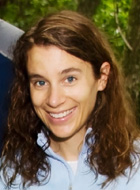
Heidi HansPetersen
NSF-sponsored Participant
Heidi HansPetersen is an entomology PhD student at the University of Florida studying agricultural ecology. My research is focused on the impact of crop diversity on insect populations and sustainable pest management techniques. In the fall of 2009, my husband Jeff and I will be moving to Haiti to conduct field experiments and develop an afterschool program for Haiti's future farmers. I hope to spend my career working in partnership with low resource farmers and the scientific community to develop relevant and sustainable strategies that increase agricultural production, food security and livelihood systems while conserving the environment. I also hope to spend a few weekends a year on the ski slopes of the Pacific Northwest where I grew up! I am an avid bicycle commuter, canoe enthusiast, and novice beekeeper.
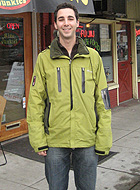
Adam Heuberger
Graduate Student
Colorado State University
Telephone: 970.491.5025
adam.heuberger@colostate.edu
NSF-sponsored Participant
I am a PhD candidate in the Crops for Health program at Colorado State University. I grew up north of Chicago and developed an interest in the medical sciences at the University of Wisconsin-Madison, where I worked in an immunology lab at the UW-Hospital Department of Surgery. The lab researches transplantation techniques to treat diabetes. I then worked as a technician in the Plant Pathology department at the University of Wisconsin-Madison, where I used transformation methods to study plant defense mechanisms to a number of soybean's economically important pathogens. During my time as a technician, I acquired an affinity to plant pathology and plant breeding and entered the university's Plant Breeding and Plant Genetics program in the fall of 2005. I investigated the mechanisms of soybean resistance to soybean cyst nematode and graduated with an M.S. in the spring of 2008. At Colorado State University, I was offered the opportunity to investigate genetic diversity in food crops and the relationship to human nutrition and health. I use C. elegans as a model system to study phytochemicals in rice and beans and their roles in preventing chronic human diseases, notably heart disease, cancer, and diabetes.
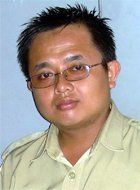
Hilman
Researcher Southeast Sulawesi Assessment Institute for Agricultural Technology
hilman.kdi@gmail.com
My name is Hilman, 31 years old. I work for Assessment Institute for Agricultural Technology, the implementing unit Institute of the Indonesian Agency for Agricultural Research and Development placed in Southeast Sulawesi Province. We especially conduct adaptive research and dissemination of agricultural technology targeted at the needs of farmers and agribusiness. As an institute that links to farmers directly, we face various problems and farmers usually consider that we should have skills in all aspects of agriculture. Therefore, we need broad knowledge and experience in meeting the needs of our end users. Since 2004 I have participated in research/assessment funded by our government in various topics especially biology and soil fertility such as: land survey in making map of phosphorus (P) and potassium (K) status in paddy field; study of fertilizing P and K on paddy field based on their status on soil; assessment of locally specific fertilizing on cocoa; study on the effects of organic and inorganic fertilizer on production and growth of rice.
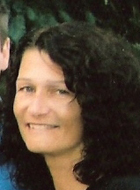
Paula Jones
Paula Jones
Teacher
Homer Central High School
Telephone: 607.423.4368
pjones@homercentral.org
NSF-sponsored Participant
Teacher for high school biology and chemistry for 12 years. Taught Prof. McCouch's daughter college biology. Also worked in McCouch's lab on and off for 8 years as the outreach teacher. MSed, SUNY Cortland.
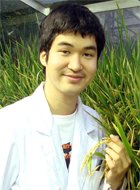
Hiroshi Masuda
Hiroshi Masuda is Japanese. He was born in Tokyo. He graduated from Department of Bioscience and Biotechnology in Tokyo Institute of Technology (T.I.T.) in 2004. Although he has been interested in Plant Biotechnology, there is no related laboratory in T.I.T. Therefore, he moved to the Department of Global Agricultural Science in the University of Tokyo, and studied master and doctoral course in the laboratory of Plant Biotechnology. He is very much interested to produce new rice varieties not only to improve livelihood of farmers but also for the nutrition aspects for all human beings. He produced iron bio-fortification rice varieties by transgenic methods. He has plan to test these high- iron rice varieties under real field condition because he expects these nutritionally value-added rice culture will reduce health risk of iron deficiency anemia among people who eats rice. On the other hand, knowledge of filed cultivation is essential for practical application of research outcomes in order to succeed in both research and practical work. Masuda is not well accustomed with rice cultivation practices as he studied only in Tokyo. Thus, prior to testing his new rice varieties in field, learning about rice cultivation in IRRI would be very valuable. Therefore, he looks forward to the opportunity to study all aspects of lowland rice production, and at the same time to share the diversity of experiences by all participants. After joining IRRI Rice Research to Production Course, he hopes all of his enhanced knowledge and skills could be effectively applied in future research work as well as iron bio-fortification rice production.
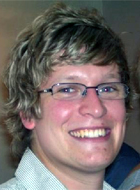
Thomas A. Mentlak
PhD Student University of Exeter thomas.mentlak@googlemail.com
Gatsby-sponsored Participant
I am a first year PhD student at the University of Exeter sponsored by the Gatsby Charitable Foundation. My research interests are on the biotrophic growth of Magnaporthe oryzae and the function and delivery of effector proteins into its host plant. Magnaporthe is a devastating crop pathogen of a number of economically important crops including barley, wheat and finger millet. It is also the causal agent of rice blast disease and is responsible for significant losses of rice harvest each year. So far, scientific research has focused almost exclusively on the start of the infection process, such as the formation of the appressoria and cuticle penetration. Relatively little is known about the biotrophic invasion of host tissue and hyphal growth within the plant. My main research interests are to investigate and determine the nature of the host-pathogen interface during rice tissue colonization by Magnaporthe. I am also interested in the role of effector proteins secreted during biotrophic invasion by comparative genome analysis and transcriptional profiling. Very little is known about how fungi secrete proteins into plant cells during active invasion and my research will provide a novel insight into rice blast disease as well as facilitate the development of new control measures of this important crop pathogen.
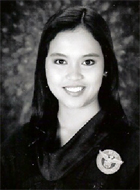
Che-Che O. Morilla
Program Head, Sustainable Agriculture Program Infanta Integrated Community Development Assistance Inc. (ICDAI) comorilla29@yahoo.com
Che-Che is a graduate of Agricultural Economics in the University of the Philippines, Los Banos, Laguna. Since childhood, she has developed great interest in agriculture since she came from a farming family. Her father is a rice farmer. That's why right after graduation in 2005, she worked as an agriculturist in ICDAI (Infanta Integrated Community Development Assistance Inc.) a non-governmental organizations in their place. She enjoyed and was very happy working with the farmers in finding the most economical and sustainable way of farming. She is also conducting Youth Field School providing awareness to the elementary and high school students on the importance of agriculture, specifically on rice production. She also anchored a regular radio program on sustainable agriculture every week where agricultural technologies and developmental activities in the lowland and coastal areas are shared and discussed on air.
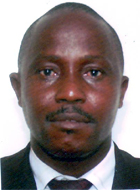
John T. Newmah
I am John Tamba Newmah, Liberian by birth and nationality, Technician under the Department of Technical Affairs, Ministry of Agriculture/ Republic of Liberia, holder of Bachelor of Science Degree in General Agriculture from University of Liberia, holder of Certificate in Land Tenure and Rural Development, from International Center for Policy Studies & Training/Taiwan, currently Post Graduate Student, doing an MSC Program in Plant Breeding at Kwame Nkrumah University of Science and Technology, Ghana. And also, LLB (In Progress) at the Louis Arthur Grimes School of Law, University of Liberia.
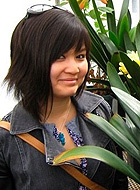
Hanh Nguyen
A 4th year graduate student in the department of Plant Biology, working in the laboratory of Dr. Greg Martin studying the molecular mechanism of bacterial effector protein to promote plant susceptibility. Born and grew up in Ho Chi Minh City, Vietnam. I graduated from Truman State University in Missouri with a BS in biology. During undergraduate years, I developed an interested in plant research, especially in improving plant's performance for agricultural purposes. For my undergraduate independent research, I studied the genetic diversity of rice landraces in the Mekong Delta, Vietnam. Although I am not studying on rice for my PhD dissertation, I hope to shift my research focus toward rice when I go back to Vietnam after finishing my degree and training in the States. My career interest is to work to develop a sustainable agricultural system in developing countries as well as training scientists in these countries and introducing them to modern molecular technologies.
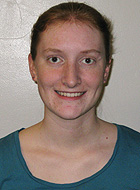
Liana Nice
NSF-sponsored Participant
Liana Nice is currently a first year PhD student in the Department of Agronomy and Plant Genetics at the University of Minnesota. She completed her bachelor's degree at Cornell University in biology concentrating in genetics and plant biology. Having been interested in genetics since high school, summer work with an entomologist, along with a desire to work in an applied field, brought her to the field of plant breeding and plant genetics. Her current research involves studying the genetic basis of tillering in barley and its wild relatives, while developing a large population of crosses between wild and cultivated barley accessions as a resource for gene discovery and utilization of plant diversity.
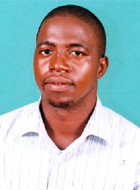
Sergio C. Ntemansaka
Mocfer Industrias Alimentares sergio.ntemansaka@mocfer.co.mz
Gatsby-sponsored Participant
Sergio Ntemansaka has a degree in Agronomy, graduated from Eduardo Mondlane University. He is currently working at Mocfer Industrias Alimentares (MIA) an agriculture enterprise that produces food for internal consumption and for export. He is responsible for upland experimental fields, dealing with evaluating varieties and agronomy management's practices of rice and other crops (Wheat, Barley, Maize, Beans, Cowpeas, chickpea and groundnuts). Sergio grew up in Tete Province, Mozambique. His interest is rice biotechnologies and to improve his knowledge in new rice technologies and the criteria of rice evaluation variety.
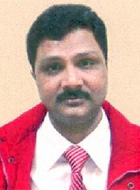
Arabinda K. Padhee
After graduating in Agricultural Sciences, I did my Masters from Banaras Hindu University (BHU). Thereafter, I completed my Ph.D. from the prestigious Indian Agricultural Research Institute (IARI), New Delhi on inheritance of pesticide resistance. Even though I was immediately selected to join as a scientist with the Indian Council of Agricultural Research (ICAR), I preferred to join the Premier Indian Civil Service. As a member of the Indian Administrative Service (IAS), I got a diversified arena to serve the poor and needy, besides contributing in policy making. Even as a young member of the service, I've headed the administration in a number of districts as District Magistrates. The present assignment of Directorship of Agriculture Department of ORISSA state of India is a sweet coincidence as I am in a position to utilize my background knowledge in farmers' welfare. I've visited Japan, Sri Lanka in connection with study missions on better agricultural technologies. I am personally interested in environment friendly farm technologies and at present promoting the SRI (System of Rice Intensification) in my state in a big way.
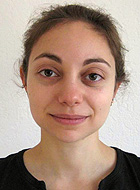
Lauren Pincus
NSF-sponsored Participant
Lauren Pincus graduated from Brandeis University in Waltham, Massachusetts with a Bachelor of Science degree in Biology and a Minor in Environmental Studies. She has interned for a number of environmental organizations, including the Sierra Club, Friends of the Earth, and the Marine Fish Conservation Network. Most recently she served as the Editor for a medical newsletter distributed to African health professionals for the Academy for Educational Development. She has spent a year in South America (Ecuador, Peru and Bolivia) volunteering with various community organizations, including a rural organic farm. She is currently working towards her dual Masters of Science in International Agricultural Development and Horticulture and Agronomy at the University of California in Davis.
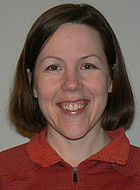
Debbie Rubas
Sr. Rice Analyst
USDA/Foreign Agriculture Service
Telephone: 202.720.1072
debbie.rubas@fas.usda.gov
As an Agricultural Economist in the U.S. Department of Agriculture's Foreign Agricultural Service, Debbie Rubas is responsible for following the international rice trade. She supports the policy areas of her agency when there are rice issues and works on an inter-agency committee that publishes monthly reports on global rice supply and use. Previously, she worked on USDA's food aid programs, focusing on West Africa and the Middle East. For work, study, and pleasure, she has travelled extensively throughout the developing world trying to better understand food security issues. This life-long interest led her to study agricultural economics, where she received a M.S. from the University of Illinois in Urbana-Champaign and a Ph.D. from Texas A&M University.
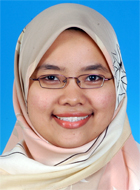
Siti Nordahliawate bt Mohamed Sidique
Lecturer Universiti Malaysia dahliasidique@umt.edu.my
I had my BSc. (Agrobiology) and MSc. (Plant Pathology) by research from Universiti Sains Malaysia, Penang, Malaysia. Experienced in conducting practical for plant anatomy, plant physiology and development and economy botany from June 2005 - June 2007 as graduate assistant in School of Biological Science, Universiti Sains Malaysia, Penang. Currently I'm working with Universiti Malaysia Terengganu as a lecturer in Department of Agrotechnology. The courses I'm teaching are the crop protection, agro-waste management and olericulture. Research is focused on morphological, physiological and genetic characteristics of pathogenic deutromycetes fungal isolated from various samples on agricultural crops. To date, received Fundamental Research Grant Scheme (FRGS) for project on Fusarium spp. associated with fruit rot disease of cucurbits in Peninsular Malaysia. And also supervise for the pre- and post-harvest diseases of melon and squash fruits cultivated on palm oil mill sludge cake compost research project collaboration with the Department of Agriculture, Rhu Tapai, Terengganu, Malaysia. I'm so eager to attend this short course and be exposed to rice studies from the expert. The information and knowledge that will be gained throughout this course will be shared with my students, researchers and farmers in Malaysia.
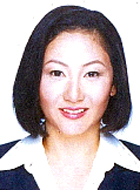
Cheryl M. Tiong
Executive Officer The IRRI Fund c.tiong@irri.org
I am Cheryl Tiong. I am from Kuching, Sarawak in Malaysia originally. I have been living in Singapore in the last 15 years and hold a Singapore permanent residency status. My professional training is in Communication and majored in Sociology and Marketing. I was with Singapore Airlines for the initial 3 years in Singapore. I worked 3 years at National Skin Centre, a dermatological medical and research centre in corporate communication, after which I joined a financial and stock- broking firm in areas of corporate communication and business development. I was fundraising and handling partnership works for the National Library of Singapore in the last 3 years before joining The IRRI Fund, Singapore since 25th February 2009.
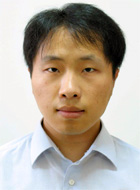
Peng Wang
Peng Wang
Post doctoral Research Assistant University of Oxford
peng.wang@plants.ox.ac.uk
Dr. Peng Wang received his Ph.D. degree from Shanghai Institute of Plant Physiology and Ecology, Chinese Academy of Sciences (Botany) in 2007. After being awarded the Royal Society China Fellowship, he then started working in the Department of Plant Sciences, University of Oxford as postdoctoral research assistant. In later 2009, he will be working as part of the C4-rice project directed by IRRI. His Ph.D. research focused on photosynthetic electron transport, specifically the physiological function of chloroplast NAD(P)H dehydrogenase (NDH). In Prof. Langdale's lab in Oxford, he has been working on protein biochemistry, molecular and cellular biology in GLK (GOLDEN2-LIKE ) project, in order to identify genes that interact with GLK transcription factors and to study their function in both C3 and C4 plants, because GLK transcription factors are proposed to be involved in cell-type specific chloroplast development in C4 plant. In the C4-rice project, Peng will move on with great interest to investigate the role of GLK and cell-type specific chloroplast development in rice.
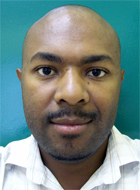
Abner B. Yalu
I am a crop improvement research scientist with the Papua New Guinea Agriculture Research Institute (NARI), Rice and Grain Research program. I have an MSc in Agriculture Studies specializing in biometrics and plant genetics at the University of Queensland, Australia. I have a PGCert in scientific communication at the PNG University of Technology and a BSc at the University of Papua New Guinea, Port Moresby. I entered research as a cadet scientist in 2003 with NARI and have since then received specialized trainings and experiential learning mostly in biometrics. I have experience in breeding food crops and providing biometrics advice and training to researchers in biophysical and social economics research. Recently I was appointed crop improvement scientist to NARI Rice & Grain program. I look forward very much to this training as I was only recently introduced to the crop. This training would be the bridge between my enthusiasm and interest in rice research and what is needed in my country and the rest of the world.
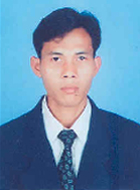
Kimsoth Yav
Kimsoth Yav
Research Assistant Cambodian Agricultural and Research Development Institute
kimsothyav@yahoo.com
I was a student in bachelor degree of agriculture science duration 4 years (began in early 2003 and finished in early 2007 part of agronomy) at Prek Leap National School of Agriculture, PNSA based in Phnom Penh City, Cambodia. In early 2005 I was a volunteer staff at SABORAS Cambodia duration 3 months in Rural Community Development Project. Goal of this project for improvement farmers economic through training, extension of technical agriculture to farmers on rice production, vegetable crops, and organic fertilizer. In 2007 until now I have worked for Plant Breeding Division of CARDI as a research assistant in part of varietal improvement/development, varietal testing and also rice seed production on Cereal and Legume Crops. In Plant Breeding Division, which is a program involves in improving crop varieties. In fact, Plant Breeding consists of 4 main parts such as germplasm selection, collection, evaluation and conservation, varietal improvement, varietal testing and seed production. I am responsible for developing protocols and conduct experiments, to collect data, to analyze data of the experiments carried out in CARDI and provinces and especially to write reports on the experiment results.
